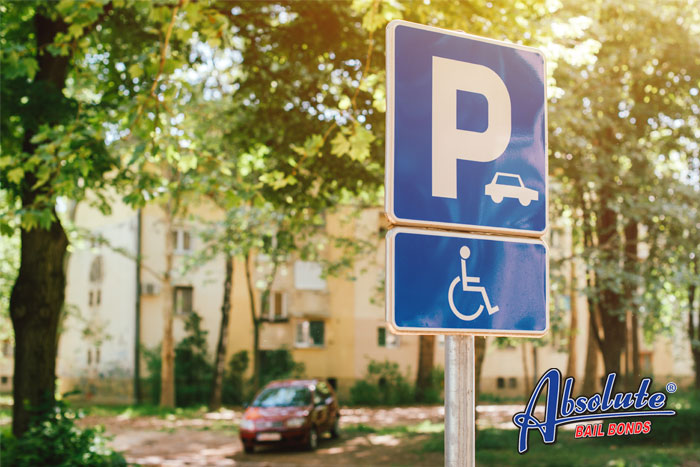What Happens if You Wrongfully Park in a Handicapped Spot?
Having a disability can make tasks that most people take for granted difficult to complete. To make things easier for people with disabilities, several laws and practices have been adopted here in California, and the rest of the nation at large. This includes things such as automatic doors, ramps instead of steps, and even specialized parking spots.
Disabled, or handicap, parking spots can be found in most parking lots. These spaces are often located close to the building or near an elevator. This is meant to help provide a person with a disability better access to their intended destination.
Since these spots are located in such desirable locations, or can regularly be found empty, some people decide to use them even though they are not disabled themselves. They don’t see it as a big deal, which is why they are often surprised by the consequences of wrongfully parking in a handicap spot.
Disabled Parking Spots
Disabled parking spots< are easy to spot thanks to their blue paint and the symbol of a person in a wheelchair. In parking lots, the spaces will also have a section beside them that is marked off by diagonal white lines. These spots are not for parking but are intended to provide room for the disabled person to get in and out of their car. Other places where vehicles with disabled passengers can park include:
- Along blue curbs.
- Street-metered spaces free of charge.
- On public streets where parking is typically reserved for residents and business customers.
- Along green curbs without a time limit.
To legally park in one of these spots, a person has to have a handicapped placard or license plate.
Misusing Handicapped Parking Spots
If a person doesn’t have a handicapped placard or license plate or misuses a handicapped placard, they can find themselves in trouble. For starters, if a person parks in a handicapped without a placard or license plate, then they can expect to have their vehicle towed and impounded.
Typically, when someone parks where they shouldn’t, officers will just stick a ticket to the windshield of the vehicle. However, since there are only a limited number of handicapped spots in an area, and they can be needed at any moment, officers will have offending vehicles towed to open up the spot. This means a person will then have to pay to get their vehicle out of impound, which can easily cost a few thousand dollars.
Misusing a disabled placard or license plate is illegal here in California under Vehicle Code (VC) 4461. Instances that count as misuse include:
- Using disabled placards or plates.
- Using someone else’s placard.
- Using an invalid placard or plate.
The only time a non-disabled person is allowed to use a disabled person’s placard or plates to park in a handicapped spot is when they are driving the disabled person somewhere. If a person is borrowing a handicapped driver’s car, they cannot park in a handicapped spot even though the car has valid plates. This is because the disabled person is not there with them. Handicapped placards and plates are only valid with the person they are assigned to.
Penalties for Wrongfully Parking in a Handicapped Spot
VC 4461 is a wobbler offense that can be charged as either an infraction or as a misdemeanor. How the offense is charged is dependent on the severity of the incident and the person’s record. For instance, if they have done this sort of thing multiple times in the past, they are more likely to be charged with a misdemeanor.
When charged as an infraction, a person will face a fine between $250 and $1,000 with no possibility of jail time.
When charged as a misdemeanor, a person will face:
- Up to 6 months in county jail.
- A max fine of $1,000.
- Misdemeanor probation.
Regardless of how the offense is charged, the court can add a fine of $1,500. The local city can also add on a $100 fine.
If You Don’t Need the Spot, Park Somewhere Else
Sometimes it can be easy for people to forget how great they’ve got it. Sure everyone wants to park close to their destination, but that isn’t always possible. Most people are fortunate enough that they can walk a far distance. Some people aren’t so lucky.
Handicapped parking spots exist for an important reason: to make things easy for people with disabilities. When a person parks in these spots and doesn’t have a disability, they are preventing that spot from being used by someone who needs it. This is why it is illegal for a person to wrongfully park in a handicapped parking spot.


